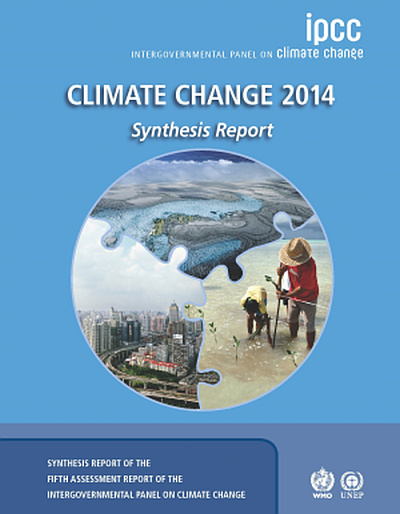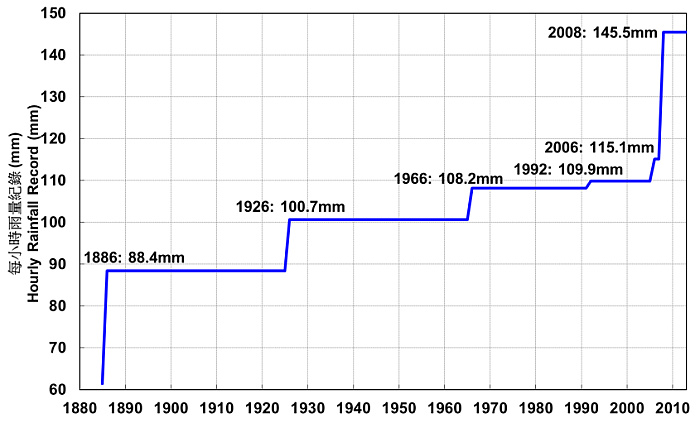The Tolling of Climate Alarm Bells
17 December 2014
"No man is an island, entire of itself;
every man is a piece of the continent, a part of the main......
any man's death diminishes me, because I am involved in mankind,
and therefore never send to know for whom the bell tolls;
it tolls for thee."-John Donne (1572 - 1631)
every man is a piece of the continent, a part of the main......
any man's death diminishes me, because I am involved in mankind,
and therefore never send to know for whom the bell tolls;
it tolls for thee."-John Donne (1572 - 1631)
Twenty-four years ago when the Intergovernmental Panel on Climate Change (IPCC) published its First Assessment Report, it was not certain then whether the observed global warming was due to natural climatic variations or human influence. With the advent of climate science and the increasing amount of observations and evidences, the sure sign of human influence became increasingly too obvious to ignore and deny. By the time of the Third Assessment Report in 2001, it was concluded that warming due to natural causes was very unlikely. Another decade or so had gone by and then came the strongest message ever spoken by science as the final instalment of the Fifth Assessment Report, the Synthesis Report (Figure 1), was released in November 2014 [1]. The proclamation of human influence on the Earth's climate was loud and clear!

Figure 1The Synthesis Report of IPCC's Fifth Assessment Report
As the certainty in observing, detecting and attributing the warming climate increased over the past couple of decades, IPCC also accentuated its language in warning the possibility of a grim reality within this century marked with more frequent extreme weather events and significant sea level rise if greenhouse gas emissions continued unabated. However, the world was slow to respond to such warnings as the atmospheric concentration of carbon dioxide continued to climb and hit its highest level in the past 800,000 years (see the blog "Record High Carbon Dioxide Concentration"). For a coastal city like Hong Kong which is vulnerable to an increased risk of sea flooding as a result of sea level rise and enhanced storm surges brought by tropical cyclones, planning and infrastructure designs for sustainable development need to ensure sufficient resilience against such potential impacts.
Nature has sounded the alarm bells and is doing its utmost best to wake us up. Globally, 2014 is very likely to be the warmest year on record [2]. Hong Kong has also just experienced record-breaking summer months this year with the average temperature of June-September reaching the highest since records began in 1884. Simple law of physics tells us that warm air has the capacity to hold more moisture. So when it rains, it pours! A heated land surface under high temperatures will also trigger more heavy rain and thunderstorms. We are already seeing both trends here in Hong Kong. Hourly rainfall records used to take several decades to be broken; but new records have been set several times in the past couple of decades, and the latest by a wide margin (Figure 2). And it is also official that thunderstorm activities in Hong Kong have been the most frequent ever in 2014, with 59 thunderstorm days registered up to the end of November, already exceeding the thunderstorm days record for the whole year.

Figure 2Hourly rainfall records at the Hong Kong Observatory headquarters in Tsim Sha Tsui (1885 - 2013)
Shortly after the release of the Synthesis Report came the joint China-U.S. announcement of reduction targets of greenhouse gas emissions [3]. Despite the continual difficulties in the negotiation among governments as recently revealed at the Lima Climate Change Conference, hopefully the joint China-U.S. announcement could bring more positive developments to the next round of governmental negotiations in Paris in 2015. But while we all hold our breath for the governments of this world to come to terms with the inconvenient truth, we as citizens of Planet Earth also have the option of taking matters into our own hands by adopting a low-carbon or zero-carbon lifestyle, which requires a fundamental change in our excessive consumption behavior and wastage. And we need to change now, as climate change is already a clear and present danger. It does not just affect people elsewhere in the world, or people somewhere in time in the distant future. We all are, in fact, the main character of the climate change story.
C M Shun and S M Lee
Reference:
[1] IPCC Press Release - Concluding instalment of the Fifth Assessment Report
http://www.ipcc.ch/pdf/ar5/prpc_syr/11022014_syr_copenhagen.pdf
[2] Global Analysis - 2014 year-to-date temperatures versus previous years
http://www.ncdc.noaa.gov/sotc/global/2014/10/supplemental/page-1
[3] U.S.-China Joint Announcement on Climate Change
http://www.whitehouse.gov/the-press-office/2014/11/11/us-china-joint-announcement-climate-change